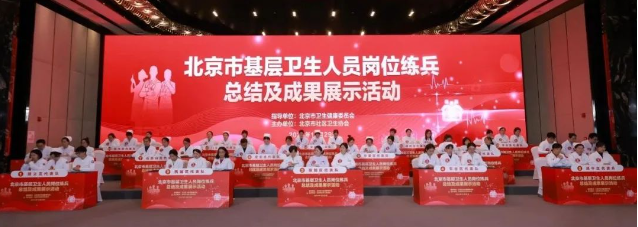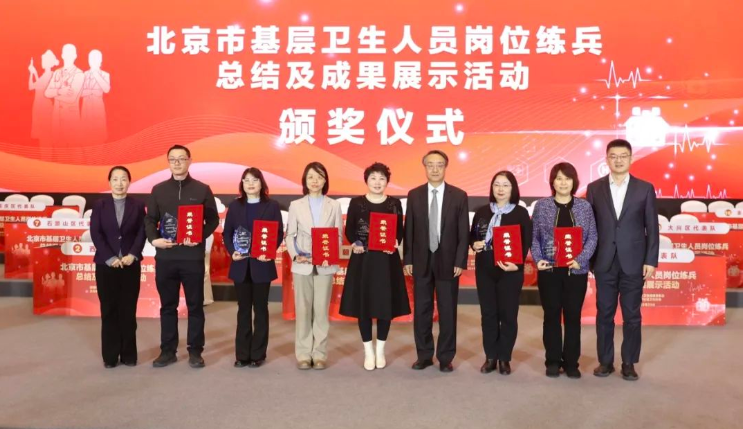In order to thoroughly implement the Party’s health and wellness policy of the new era—“focusing on the grassroots”—and to continuously consolidate and improve the basic services on diagnostic and treatment, as well as the integration of medical and preventive services at the grassroots level, the Beijing Municipal Health Commission has consistently regarded the development of grassroots health talent as a key starting point for promoting the high-quality development of grassroots healthcare. To this end, the Commission has trained 36 chief experts in community health, 143 experts in community health management, and 2,256 key personnel in community health services. The Commission has also organized multidisciplinary and multi-format continuing education programs, training over 9,000 individuals to enhance the professional qualifications of community health management staff. Currently, the community health workforce in Beijing totals 44,400. Compared to 2019, the number of approved staff of community health service institutions has increased by 1,550, and the number of health technicians has risen by 5,649. The grassroots health workforce has grown further, with health technicians holding bachelor’s degrees or higher now accounting for 57%, and those with senior professional titles making up 9.1%. The structure of the grassroots health personnel has been further optimized.
In 2024, the Beijing Municipal Health Commission has launched post-training activities for grassroots health personnel across the city, focusing on developing and enhancing the capabilities of six key positions: general medical cases, traditional Chinese medicine, rehabilitation, nursing, preventive healthcare, and pharmacy. Nearly 40,000 individuals across the city have participated in online theoretical learning, 6,149 undergone practical skills training, and 228 entered municipal skills training and assessment programs. On December 29, the Commission held a summary and achievement display event for the post-training of grassroots health personnel in the city’s health system. After intense competitions, including on-site medical, nursing and preventive post training quizzes, 39 outstanding individuals were selected from six post skill competitions, and six district-level exceptional organizations were awarded.


At the event, Wang Jianhui, Deputy Director of the Municipal Health Commission, congratulated the winning individuals and organizations and praised the finalists. He highlighted that in recent years, grassroots health work in Beijing has experienced rapid development. The grassroots health service system has been further improved, the health service team has been strengthened, medical service capacity has grown rapidly, and the overall atmosphere surrounding the development of community health services has become increasingly robust. He emphasized that Beijing will continue to adhere to the principle of “talent is the primary resource” and will persist in improving and stabilizing the construction of grassroots health talent teams. This will be done by focusing on improving capabilities and enhancing vitality, consolidating the foundation of the grassroots health service network.

